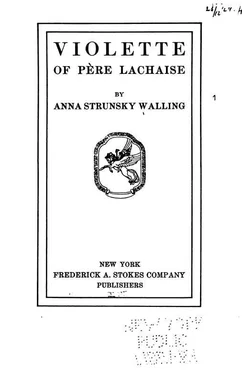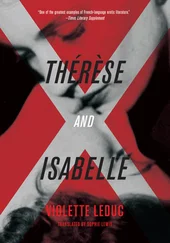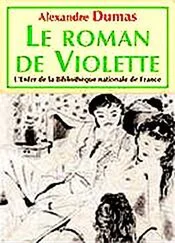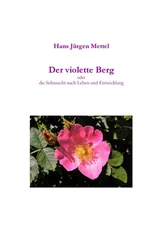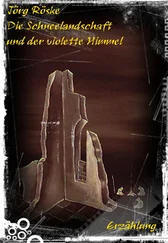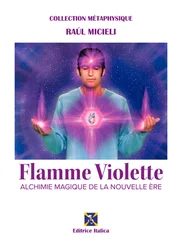Anna Strunsky - Violette of Père Lachaise
Здесь есть возможность читать онлайн «Anna Strunsky - Violette of Père Lachaise» весь текст электронной книги совершенно бесплатно (целиком полную версию без сокращений). В некоторых случаях можно слушать аудио, скачать через торрент в формате fb2 и присутствует краткое содержание. Город: New York, Год выпуска: 1916, Издательство: Frederick A. Stokes Company, Жанр: great_story, на английском языке. Описание произведения, (предисловие) а так же отзывы посетителей доступны на портале библиотеки ЛибКат.
- Название:Violette of Père Lachaise
- Автор:
- Издательство:Frederick A. Stokes Company
- Жанр:
- Год:1916
- Город:New York
- ISBN:нет данных
- Рейтинг книги:4 / 5. Голосов: 1
-
Избранное:Добавить в избранное
- Отзывы:
-
Ваша оценка:
- 80
- 1
- 2
- 3
- 4
- 5
Violette of Père Lachaise: краткое содержание, описание и аннотация
Предлагаем к чтению аннотацию, описание, краткое содержание или предисловие (зависит от того, что написал сам автор книги «Violette of Père Lachaise»). Если вы не нашли необходимую информацию о книге — напишите в комментариях, мы постараемся отыскать её.
Violette of Père Lachaise — читать онлайн бесплатно полную книгу (весь текст) целиком
Ниже представлен текст книги, разбитый по страницам. Система сохранения места последней прочитанной страницы, позволяет с удобством читать онлайн бесплатно книгу «Violette of Père Lachaise», без необходимости каждый раз заново искать на чём Вы остановились. Поставьте закладку, и сможете в любой момент перейти на страницу, на которой закончили чтение.
Интервал:
Закладка:
Anna Strunsky Walling
Violette of Pere Lachaise
To Rosalind English Walling My Mother by the Grace of Love

Childhood
1. The Monument
IT was night in Pere Lachaise. Night rested on the tombs and cypresses, on the marbles whose silent faces were written over with grief, on the flowers lying in sad sleep in their beds, on the little wild gardens; marking the older graves. Pere Lachaise stirred in the night of life which enveloped it, as if it were aware of the trees and the wind and the moonlight in its midst.
Night rested on the most beautiful and poignant thing in that home of beauty and of death, the monimient dedicated to all the dead which stood on the top of the atenue facing the main gate, the epic in stone carved out of the heart of universal and eternal sorrow. Night played about those forms of youth and age which were advancing in every posture of agony, with every gesture of anguish, to a door leading straight upon the End, weeping, stumbling, shrouding their faces, stretching out their hands. Night wrapped in shadow the last figure of the group, the woman kneeling with head turned from the conunon goal and eyes fastened on her past which but a moment ago was the present. Her fingers pressed to her lips were throwing a farewell kiss to the hills and valleys of existence. Formidable and compelling was her hesitation and reluctance, so that death lost some of its absoluteness, and f oimd itself contradicted and defied, suggesting an immortality that no human heart had yet believed in, no mind had conceived. For not death itself could conquer a loathing so deep. Here, at least, if never anywhere before, death halted and failed of its prey.
Yet her lips were pale and were framed in a kiss which was an unconsiunmated dying. On the threshold that she was approaching a voice arrested her. Love and sorrow hailed her, memories heckoned, and her tears grew stilled, while she pressed one hand to her heart, and threw that kiss with the other. Thus she passed into death, a flower snapped in two, not hy a zephyr, hut hy a wind that had known the sea, and at first had rippled gently its surface in heautiful laughter, and then in angry revulsion had lashed it to foam.
Violette, who knew the nights of Pere Lachaise almost as well as the days, had looked long on that statue of the woman lingering. It taught her the way to die, greeting life from death's threshold, at the end imahle to forget or he forgotten of life.
II. Pere Lachaise
THE day Violette and her grandfather moved into the street facing the cemetery, Pere Lachaise, she stood in the window of her room above the little florist shop and watched a carriage disappear through the gate. It was drawn by horses draped in black, and was followed by men and women. She wondered why those sad people went where it was so sad. She knew that it was sad there among the trees, that something important and terrible went on there. She turned and looked at her grand-father dozing in his chair, and she felt that in some way he was the key to the mystery of what she had just seen, in some way his weakness and age were related to the place, in some way his form abandoned to sleep answered her question. She was afraid.
That day her grandfather told her the story of Pere Lachaise, and she rehearsed it to herself at night when she heard the whispering of its trees. In the morning she went there, and turned the door-knobs of the iron-grated tombs, bent over the urns, smelt the flowers, and lifted the wreaths from their hooks. She walked far up the long avenues, thinking that sometimes the dead must rise and lay ghostly hands on the door-knobs, press their faces against the railings and nod to the children playing on the steps. She walked on and on until she felt tired. It began to seem to her that the Place drowsed, or held its breath, and she obeyed a prompting that came as much from the air and the stillness as from within her, and lay down on the cool grass to fall asleep.
This was the beginning of her intimacy with Pere Lachaise. Sometimes its trees swayed in the wind, beckoned to her, saddened her, at other times it was a fair garden, stretching sweet in the sun, garlanded with rose and myrtle. She lay in bed at night wondering, questioning, fearing, and in the daytime she walked and played there, or bent her head above the flowers and pursued vague, fleeting thoughts. She had a sense of recent loss, a feeling of loneliness, a consciousness that she had no one in the world besides her grandfather.
Her grandfather, too, had only her, but at one time there had been many others. Once they had been alive! Time, wonderful time, that went on forever and began with the beginning, never gave back what it took away. Time had robbed her grandfather—year by year he had been made poorer, weaker, more desolate, but to her time was giving—she did not know what. She saw no resemblance between her own life and his, nor did she think that her life like his was running out like the sand in a glass.
Often she mounted a hill and looked at the city in the distance, and wondered where the dead lying at her feet had lived, whether they had been happy, whether their people surviving them had known that they would die and never return to them except as memories. She wondered if they had been taken by surprise, or if they had sunk back gently into death, drifted out upon its shores as though forgetting every one, everything, as though relieved.
There were times when she fled from Pere Lachaise—it was whenever she came upon an open grave, with the red earth lying in fresh heaps aroimd it and a spade just out of the digger's hand stuck carelessly at the side of it. The brighter the day was, the more smiling the sky above it, the more sweet and tender the song of the birds in the cypresses, the more she was frightened by such a sight in that still place. She fled from Pere Lachaise when she happened upon a fimeral and saw the group of mourners assembled about a bier. It was not enough then to go farther into the cemetery; she must leave Pere Lachaise altogether and seek the living, walk long hours through the streets of Paris, or sit with her grandfather at the counter.
Yet she would return there the next day. She would go back to that loveliness, those spaces, that stillness and peace which yet resounded with a music not to be heard elsewhere; always she would go there and find thoughts trooping into her mind, dreams and fancies one by one filling her heart. She loved Pere Lachaise, and she came to know better and better the people that lay sleeping there. There was an old grave on a hill with a tree at the head and another at the foot, and a little wild garden over it—an old grave because the time when her mother lived must have been long ago, it seemed to her. There she often sat and looked out upon the city with its towers and domes, and her heart rioted. If she had a mother, how every one would know, seeing them together, that she was loved better than any mother in the world, that she was a mother wrapped all around by her child's level If she had a mother what a dream and a wonder life would be—a mother all her ownl Why could she not come back again? Was there no power to fulfil the heart's wildest desires and deepest needs ? Such questions clamouring for impossible answers shut the door of Pere Lachaise in her face, placed her suddenly a stranger at its gates, and veiled as with a pall all its gentle beauty.
Violette was hardly aware that her life was different from that of other children. She only felt that it was wonderful and full, that it was good to have a grandfather like hers, though sad and terrible that he must be so old, good their home fragrant with flowers, though so desolate, good the neighbourhood of Pere Lachaise, good the meetings to which she was taken and the books she read, since both gave her something that extended beyond the present, that was as large as the world.
Читать дальшеИнтервал:
Закладка:
Похожие книги на «Violette of Père Lachaise»
Представляем Вашему вниманию похожие книги на «Violette of Père Lachaise» списком для выбора. Мы отобрали схожую по названию и смыслу литературу в надежде предоставить читателям больше вариантов отыскать новые, интересные, ещё непрочитанные произведения.
Обсуждение, отзывы о книге «Violette of Père Lachaise» и просто собственные мнения читателей. Оставьте ваши комментарии, напишите, что Вы думаете о произведении, его смысле или главных героях. Укажите что конкретно понравилось, а что нет, и почему Вы так считаете.
